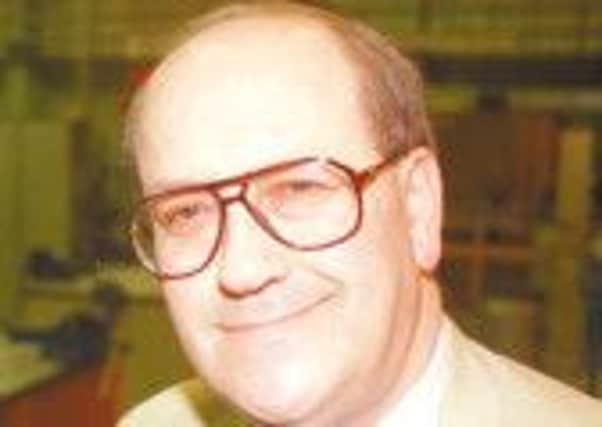Obituary: David Bernard Capitanchik, professor and terrorism expert


David Capitanchik was a multi-faceted dynamo of a man: an academic, author and broadcaster, world renowned for his specialist knowledge of Middle Eastern politics and terrorism.
Utterly reliable and always available to comment with a succinct view of current issues, he was the first port of call for the media, indispensable to his contemporaries and an inspirational lecturer for countless students of politics and international relations.
Advertisement
Hide AdAdvertisement
Hide AdA Londoner of Russian descent, a Jew and a passionate Zionist, he also had a strong allegiance to Scotland which he had made his home for almost half a century, but in his heart he remained an Israeli, committed to the future of the state where he had first lived as a teenager.
He was the son of Abraham Capitanchik, a highly skilled printer in both English and Yiddish, and his wife Minnie. His father’s family had left Russia for Argentina before finally settling in the UK. Young David left grammar school early and went to a training farm to learn agriculture and Hebrew. By the age of 18 he was living in Israel, in the early years of the fledgling state, as a member of Kibbutz Amiad in Upper Galilee. He also served in the Israeli Defence Force and worked in the youth section of the Histadruth, an Israeli Labour trade union movement.
He returned to the UK when he was sent to work on a youth project for Jewish youngsters. In 1959 he married Helen, who was also involved in a Zionist youth group, and the couple returned to Israel, initially to the kibbutz and later living just outside Tel Aviv.
Helen eventually persuaded him to return to the Britain in the early 1960s, to go to university. He studied politics and sociology at Southampton University as a mature student and immediately stood out as a result of his intellect and personality.
After graduating with honours he did a masters in politics, resulting in the publication of his thesis The Eisenhower Presidency and American Foreign Policy.
He moved to Scotland in 1967 to take up a post as lecturer in Aberdeen University’s department of politics and international relations and rapidly became a senior lecturer, specialising in the politics of the Middle East and in international terrorism.
He remained at the university for the next 26 years, until 1993, and in 1996 he co-wrote a report, The Governance of Cyberspace, becoming one of the first writers to consider the impact of groups and individuals using the internet to disseminate hate material and to identify the need for regulation.
Throughout his university career and in subsequent years he was in great demand in the media as a commentator and writer. He published innumerable articles in learned journals and newspapers and would happily respond to requests for comment pieces, meeting tight deadlines by expertly dashing off 500 words in a couple of hours. He was also a popular broadcaster, hosting business programmes and phone-ins for Aberdeen-based Northsound Radio.
Advertisement
Hide AdAdvertisement
Hide AdAfter leaving Aberdeen University he worked for a while for Aberdeen College of Education before joining The Robert Gordon University in 2000 as project development officer with the department of eLearning.
He was made an honorary professor at RGU and after retiral his expertise in international relations and terrorism continued to be called upon. In 2006 he warned that Scotland was potentially vulnerable to the threat of a terrorist attack, identifying several target areas including the oil and gas sector.
The following year an attempted suicide bombing was launched at Glasgow International Airport when a Jeep loaded with gas canisters was rammed into the airport entrance.
David Capitanchik, who moved to Dunfermline almost five years ago, maintained in interest in international affairs and kept in contact with a wide range of friends, including colleagues in Israel, with whom he spoke regularly, in both a formal and informal capacity.
He had been a Burgess of the Guild of Aberdeen and had many contacts in business and civic life to which he was an enthusiastic contributor. Away from work he loved football, snooker, old movies and old sitcoms and was fascinated by new gadgets, mobile phones and IT, becoming a self-taught expert in such technology.
He was also an excellent photographer and adored taking portraits of his children and grandchildren.
“Looking back, he was the most unusual man, as nothing was too much for him,” said his wife. “He will be sorely missed by his family and all those whose lives he touched.”
He is survived by his wife Helen, their sons Daniel and Gabriel and grandchildren Charlotte, Louis, Emmanuel, Zane and Hannah.